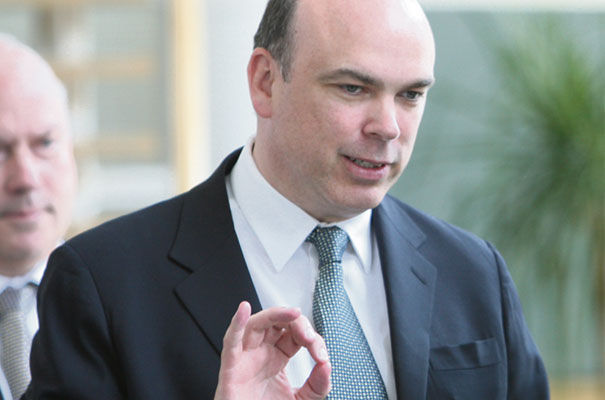It was a very Black Friday for Cambridge technology entrepreneur Mike Lynch. First he lost his fight against a civil action brought in the UK by US giant Hewlett Packard then – just agonising hours later – Home Secretary Priti Patel signed off on his extradition to the US to face criminal changes.
Both cases cover the sale of Dr Lynch’s Cambridge tech firm Autonomy to HP for $11.1 billion in 2011.
Dr Lynch denies all HP’s allegations that he committed fraud in the lead-up to selling Autonomy to HP. Just minutes after the extradition order was signed by the Home Secretary, his lawyers came out fighting.
Dr Lynch has lodged appeals against both the extradition and Justice Hildyard’s finding for HP in the UK civil case.
Dr Lynch’s fate is now firmly in the hands of the Courts. There is no appeal against Patel’s decision per se; her signature is a rubber stamp in the legal process.
But Dr Lynch has two weeks to file his appeal against extradition in the courts. The US then has a further two weeks in which to respond and Dr Lynch has another fortnight after that in which to respond to America’s assessment. At that stage the Court of Appeal decides what action to take; if they uphold the appeal it could be months for it to be heard.
Regardless of forthcoming events, Priti Patel’s decision to extradite is regarded as unprecedented in the annals of UK-US technology dealings.
Dr Lynch’s lawyer Chris Morvillo of Clifford Chance, said the entrepreneur was unequivocal in his determination to fight the UK court decision and the extradition order – the latter tagged “a sad surrender” by a seasoned Cambridge entrepreneur who asked not to be named.
Morvillo was considerably more forthcoming. He said: “Dr Lynch firmly denies the charges brought against him in the US and will continue to fight to establish his innocence.
“He is a British citizen who ran a British company in Britain subject to British laws and rules and that is where the matter should be resolved. This is not the end of the battle – far from it. Dr Lynch will now file an appeal to the High Court in London.”
Senior British politicians, including David Davis, and a string of Cambridge entrepreneurs urged the Government to resist US pleas to extradite Dr Lynch, citing a huge difference between UK and American accounting rules. They also felt it would set a dangerous precedent given the large number of US company acquisitions of UK firms, many of which have already been conducted against highly-stressed backdrops.
If a deal was struck in the UK and the company being purchased was British then UK rules – basically caveat emptor (buyer beware) – should apply, they have argued.
HP paid massive fees to professional firms to go over Autonomy’s books ahead of opening its cheque book. And the view pertains on both sides of the Pond that HP would have gone ahead with buying Autonomy in any event for a lesser cost, even had their advisers flagged up issues of concern and felt the proposed sale price was inflated.
Regarding the civil case in the UK, Dr Lynch’s team had waited months for a verdict, only for it to be delivered on the day Priti Patel had to decide whether to extradite the entrepreneur.
Apparently, it was felt the Home Secretary should have all possible legally ratified information about the deal at her fingertips ahead of making such a potentially life-changing decision.
On the UK civil case, Kelwin Nicholls, of Clifford Chance, said: “Today’s outcome is disappointing and Dr Lynch intends to appeal. We will study the full judgment over the coming weeks.
“We note the judge’s concerns over the reliability of some of HP’s witnesses. We also note the judge’s expectation that any loss suffered by HP will be substantially less than the $5 billion claimed.”

